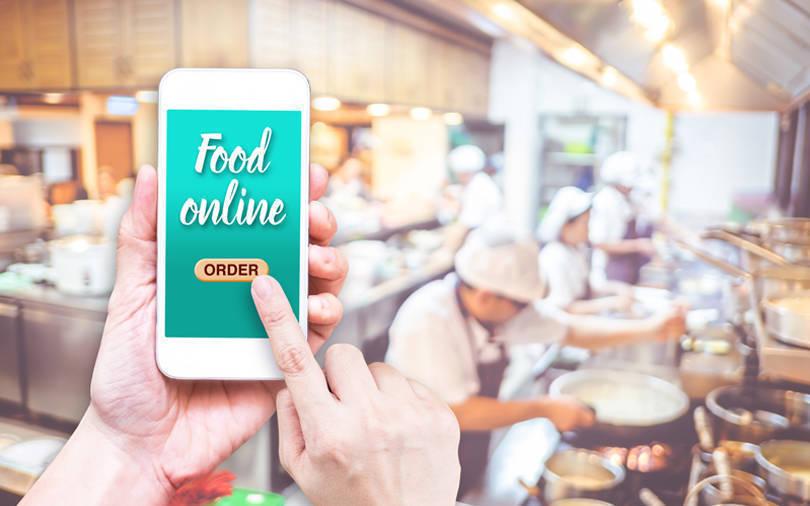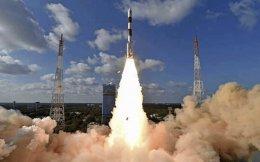Zomato initial public offering (IPO) and its stellar listing on the stock exchanges created waves in July as the food delivery app became the first tech unicorn to tap the domestic capital market. Rival Swiggy was gracious enough to term Zomato's public float as "a big day for Indian startups", and invited people to invest in "something sweet" to mark the special occasion. The exuberance and jubilation of the duo may, however, be dampened if the fitment committee's recommendations to the Goods and Service Tax (GST) Council, slated to meet this Friday, are accepted.
The fitment committee is understood to have recommended that the GST Council should treat food delivery and cloud kitchen companies as restaurant services and tax them accordingly in a bid to get more tax -- it has estimated potential tax losses of Rs 2000 crore in 2019-20 and 2020-21.
The rate fitment committee, which comprises officers from various states and makes recommendations on tax rate changes, has also suggested that e-commerce operators (ECOs) such as food delivery apps should be classified either as deemed suppliers or aggregators.
If the GST council categorises ECOs as deemed suppliers, the GST rate will be 5% without input credit and 18% with input credit from the restaurant to the ECOs. On the other hand, if the council classifies ECOs as aggregators, the tax rate will be fixed later.
VCCircle spoke with several stakeholders to get their views on these reported recommendations since GST is currently paid by restaurants and not by food delivery apps.
Ayush A Mehrotra, partner at law firm Khaitan & Co said the recommendations of the fitment committee are likely to impact both, the ecommerce business and the restaurants, negatively. This is because the committees’ propositions will limit the ecommerce company’s ability to choose the business model and force them to become aggregators, he said.
For restaurants, this move will force smaller players, having a threshold less than that mandated for GST registration, to register and pay GST, with continued restriction on input tax credit, he explained. The registration limit for service providers in GST in India is Rs. 20 lakhs.
An executive at another law firm, who did not wish to be named, said the committee's recommendation on treating the food delivery businesses including cloud kitchens as “restaurants” and imposing a rate of tax of 5% on their services (without availing input tax credit), would impact their working capital and increase their compliance burden under the taxation laws including among others to get their software systems and processes to be aligned with the proposed law.
Sandeep Murthy, founding partner at Lightbox, an investor in cloud kitchen, believes that new sectors need to be given time to develop as these businesses that have been funded by venture, private equity and now public markets are incurring losses. Rather than trying to introduce a tax burden on new emerging segments as means to “level the field”, the need of the hour is to provide relief and aid to the restaurant industry so that they can get back on their feet, he explained.
To be sure, Zomato, Swiggy and Rebel Foods may have attracted heavy investor funding but still bear heavy losses.
Another venture capital investor, who did not wish to be identified, said that if the rate fitment committee's idea is to bring the GST norms in line with the restaurant, "then I think from the delivery food apps and cloud kitchens' perspective, it is going to be good because there is an opportunity to increase the tax overall by giving the input tax credit".
The executive cited above said, "Once the relevant amendments or recommendations are out in public domain, it will give a clearer picture as to how these businesses will be affected."
Rameesh Kailasam, CEO of IndiaTech.Org, a think tank of Indian startups, believes the rules will be clear once the recommendations are made official. He added, though, that food delivery platforms "offer a fantastic electronic audit trail for the authorities" so the idea should not be to go after such platforms but effectively utilize the information coming out of these platforms into the GST system for effective tax collection and enforcement.
Khaitan's Mehrotra said it may be prudent for the government to consider the option of allowing input tax credit to restaurants to help contain the cost impact of this proposal. Lightbox's Murthy, too, corroborated that India should be careful about focusing taxation efforts on emerging industries. "Let them mature and find profitability, and then ensure that they pay their appropriate level of taxes," he concluded.






